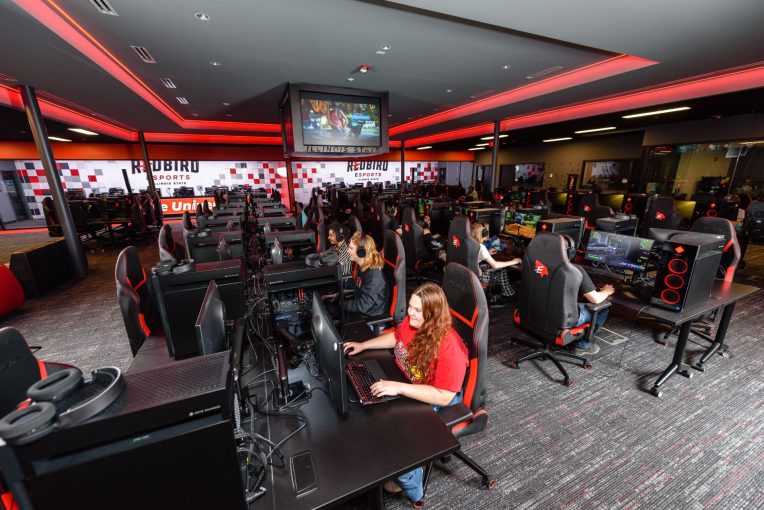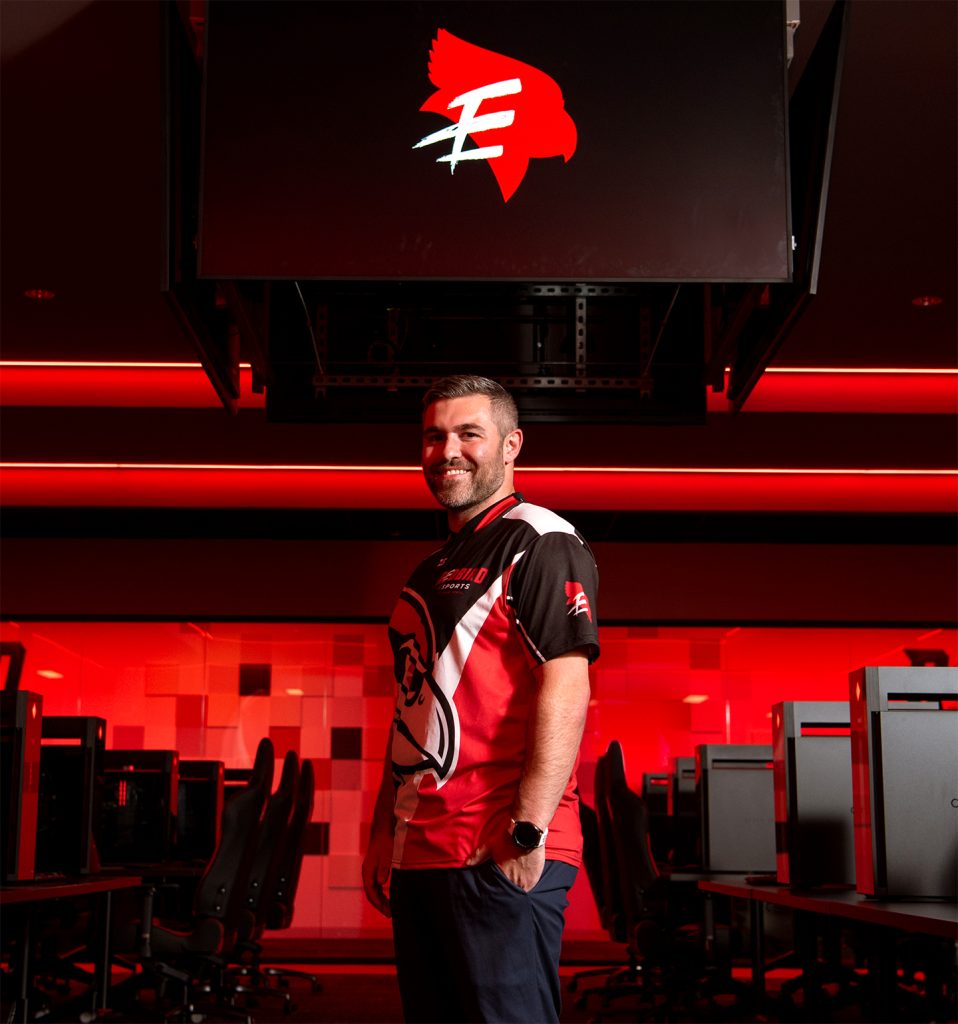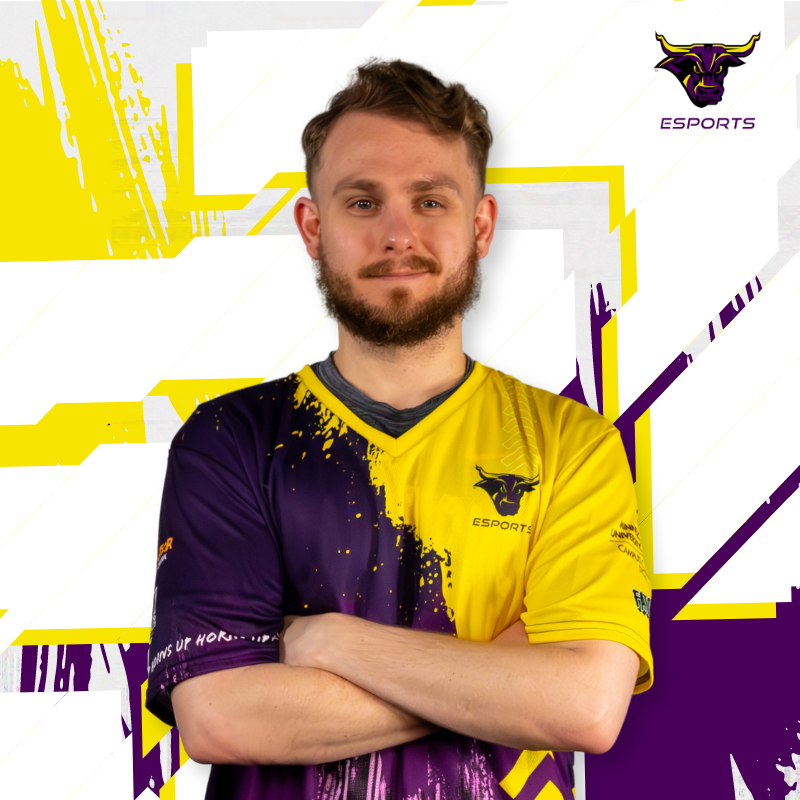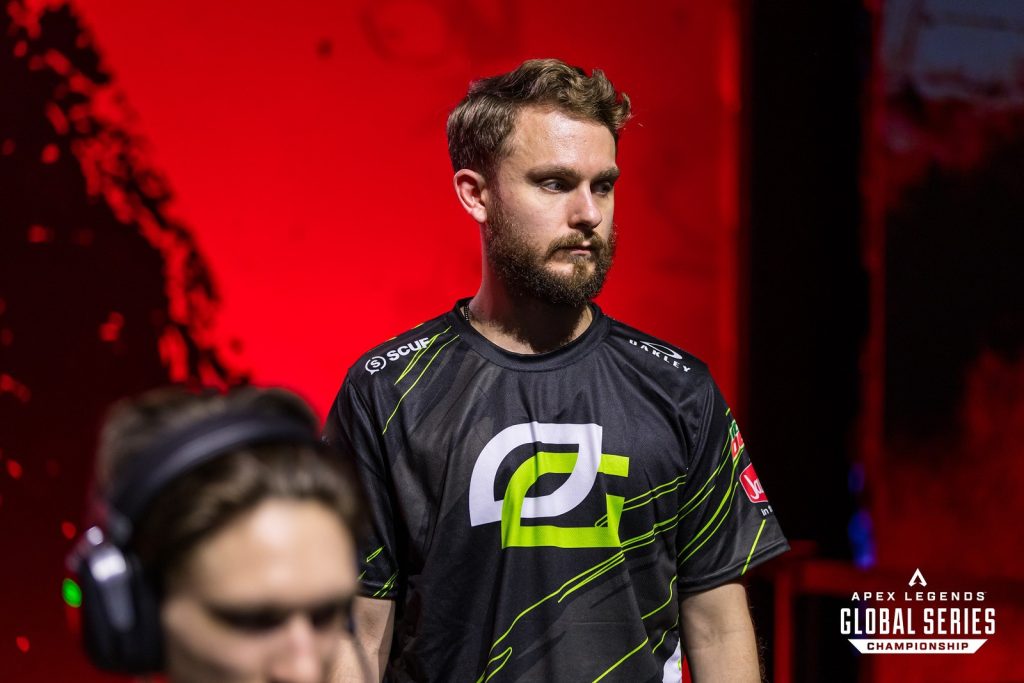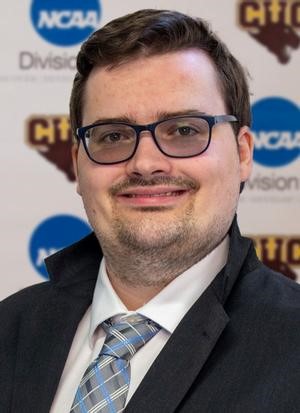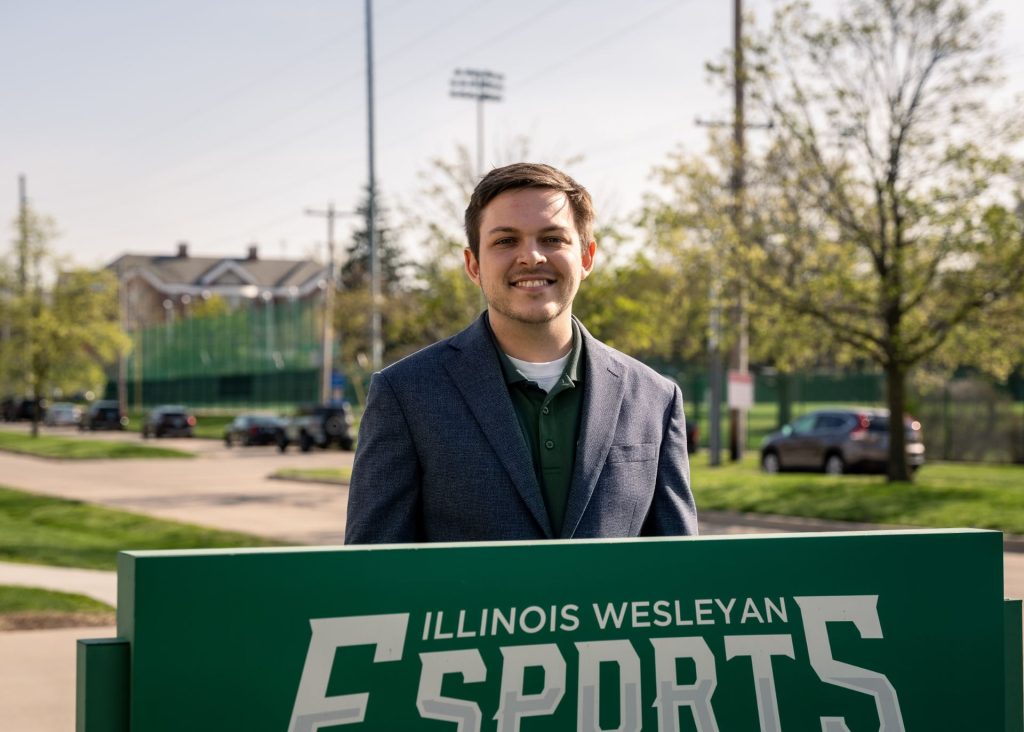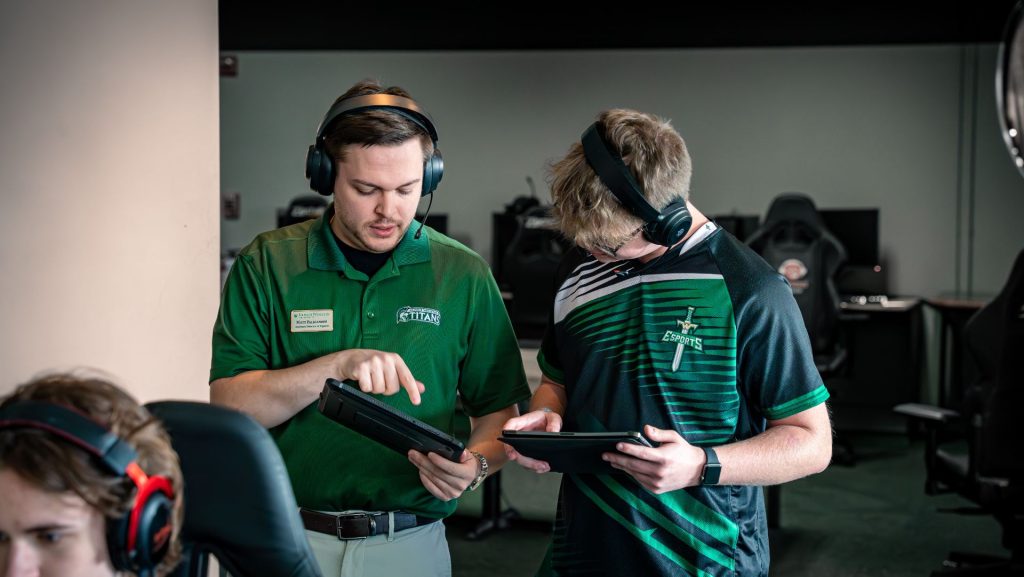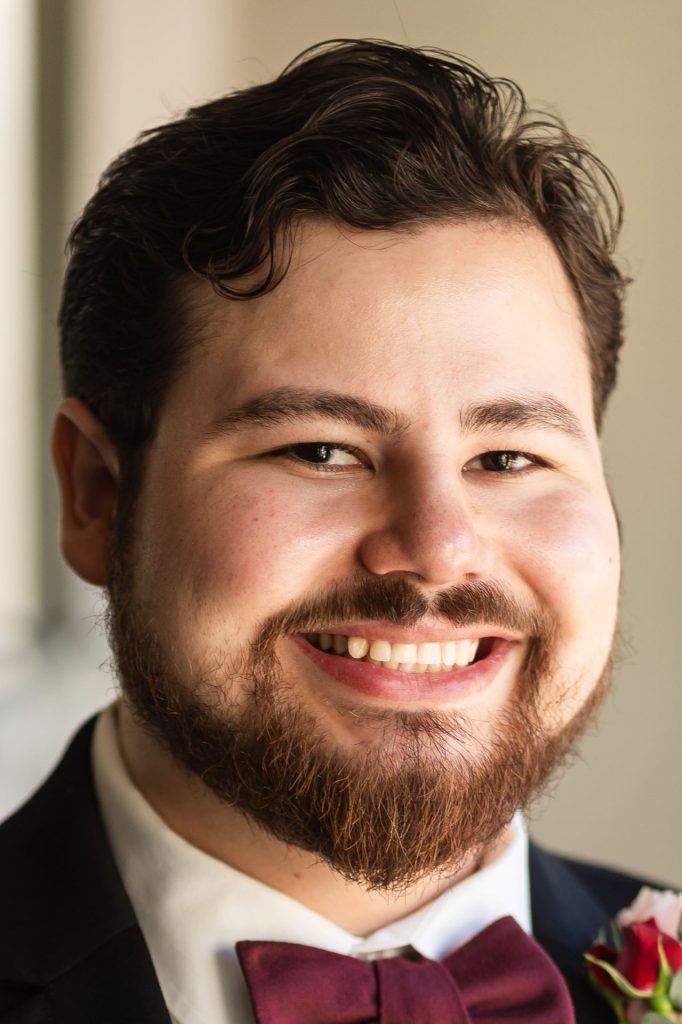Redbird Esports not only produces winning teams but also alumni who, as collegiate esports coaches, are building their own successful programs.
Within the past two years, four former Illinois State University esports players have landed coaching gigs, including: Levi Arnett ’22 (Minnesota State University), Joshua Mol ’21 (Concordia University Chicago), Matt Paliganoff ’22 (Illinois Wesleyan University), and Isaiah Perez ’20, M.S. ’22 (Illinois Institute of Technology).
Career development in the growing esports field is a pillar of Illinois State’s program, according to Director of Esports David Kirk, M.S. ’16. He said he and his staff often talk with students and their families about career opportunities beyond becoming a professional player.
“Our alumni have played a significant role in developing our program, and their ability to apply the skills they’ve acquired here to contribute to the growth of collegiate esports is a source of immense pride for both our program and the University,” Kirk said. “As we celebrate our fourth year, we anticipate seeing our alumni venture further into a variety of esports-focused careers beyond coaching. This expansion is a testament to the broad scope of professional pathways our program nurtures.”
We spoke with three alumni who are drawing from their experience with Redbird Esports in their current roles as college coaches.
Levi Arnett ’22, Minnesota State University, assistant director and head coach
At Illinois State: majored in Creative Technologies, president and team manager of the Redbird Halo Club, executive member of the Redbird Gaming registered student organization
What is your current role in collegiate esports?
Levi Arnett: As the assistant director and head coach of Maverick Esports at Minnesota State University, I support the players, our player managers, and coaches with all team operations for the eight titles we play within our program. I also provide mental health/well-being and nutrition resources to all students in our program and clubs. Lastly, I serve as the administrative connection and resource for our program. I work with other departments and on-campus programs to provide as many services and resources as possible for the students in our program.
How did your experience with Redbird Esports prepare you for your role as a collegiate esports coach?
Arnett: It taught me a lot about student engagement and how collegiate esports requires student engagement. You can’t just form a program and say, ‘OK, all these players will just show up.’ You have to work with the students that you have on campus. You really have to focus on building it internally as a community at the club level, and then, support the students who step up and are leaders and have teams that are participating. I always say that I try to mirror this program to what happened at Illinois State where we were all creating clubs. Here, I’m building up the student engagement by trying to create clubs and create events, which then feed into our program.
How have you navigated the transition from player to coach?
Arnett: It helps that I’m a little bit more mature and older. I was 26 or 27 when I transferred to Illinois State. I also served in the Marine Corps, so I had quite a bit of leadership experience. Leadership, life experience, coming to school late—those skills put me in a more capable position of juggling school, life, and working with players. Also, since I’ve already worked in professional esports, I already knew what it took to compete at the top and the skillsets that are required for each game.
What advice do you have for current collegiate esports players who want to become college coaches?
Arnett: They really need to understand the ecosystem, which requires getting involved in every single club or every single event that you can do. There are tons of opportunities for volunteering. I treated my time in esports kind of like a ladder. Each event is a rung up the ladder, and whether you’re getting paid or you’re volunteering, you want to keep moving up. It requires a lot of engagement. I don’t think you can just graduate and decide to come into this field. You have to really apply yourself and be passionate.
Joshua Mol ’21, Concordia University Chicago, head esports coach
At Illinois State: majored in history, varsity League of Legends player, student coach
What is your current role in collegiate esports?
Joshua Mol: This is just like a regular coaching job: recruiting, going to esports conferences, and attending workshops and stuff like that to improve myself. In my role, I’m also responsible for organizing practices, having standards, and helping our students with their mental health and academic health because I want to see these students succeed rather than just win.
Why did you decide to become a collegiate esports coach?
Mol: Coaching is appeasing the part of me that wanted to be a teacher for a while, because coaching is another form of teaching. We’re just doing it through the video games we love. A lot of the things you get from esports are the same as other sports, like coordination, working with others, leadership, teamwork, and problem solving. And you can apply all of those in the field of esports.
How have you navigated the transition from player to coach?
Mol: I did a bit of coaching while I was at ISU—I took a semester off from playing to coach. I really want to see the players succeed. And when they finally get that spark that pushes them to the next level, I feel like I succeeded as a coach and educator.
What advice do you have for current collegiate esports players who want to become college coaches?
Mol: Take the chance that’s given to you. Not every campus has a club at the level that ISU has. We’re very lucky. I would say there are many clubs in the area that are big, but they don’t have the same level of support that ISU has given. So, I would take the chance.
Reflecting on your time with Redbird Esports, are there specific values or principles instilled in you as a player that you now emphasize as a coach?
Mol: Integrity. At ISU we didn’t take many shortcuts in practice or things like that. We said, ‘We’re going to do this all the way or we’re not going to do it at all. I learned that especially from David (Kirk) and Jack (Blahnik) during my last year there. Now, as a coach, I make sure everyone is 100%.
Matt Paliganoff ’22, Illinois Wesleyan University, assistant director and Overwatch head coach
At Illinois State: majored in communication, varsity Overwatch player, student coach, social media/video contributor
What is your current role in collegiate esports?
Matt Paliganoff: I am the assistant director of Esports and the head coach for our Overwatch teams. My main responsibility during the school year is coaching our Overwatch esports teams—varsity and academy. I schedule and run their practices, do one-on-one reviews, and work to make the teams as competitive as possible through the improvement process.
Why did you decide to become a collegiate esports coach?
Paliganoff: When I was in the job search process after graduation, the IWU position was one of the first that I ended up applying for. Since I played competitively at ISU and knew the Bloomington-Normal area, it seemed like a natural fit. They were also looking for other skills, which both my major and Redbird program experience helped with.
How did your experience with Redbird Esports prepare you for your role as a collegiate esports coach?
Paliganoff: The biggest thing was working with my coach and picking up many of the things that she showed me. The experience helped me think, ‘I can do this too. I want to help people the way my coach helped me so I can make the experience even better for the next person.’
What advice do you have for current collegiate esports players who want to become college coaches?
Paliganoff: Playing competitively is a good start, but you want to be as well-rounded as you can and have some kind of other skill that you bring to the table. Another thing I’d add is to get involved as much as you can. Try all the different experiences you can—like if there’s a club, if there’s program opportunities, get involved with all those because if you have a well-rounded and diverse experience within the industry, that’s going to be big to start a career with. Even if it’s just volunteer.
Reflecting on your time with Redbird Esports, are there specific values or principles instilled in you as a player that you now emphasize as a coach?
Paliganoff: The growth mindset is something I still use to this day. Being able to reflect, take a look at where you’re at, and be like, ‘Alright, this is good. This isn’t good. This is average.’ And then being able to find tangible steps forward towards improvement is something that my coach really emphasized. Concepts like this really helped me shape my coaching style.
Isaiah Perez ’20, M.S. ’22, Illinois Institute of Technology, esports program coordinator
At Illinois State: majored in biological sciences, earned a master’s in recreation administration, League of Legends club leader and advisory board member, esports club treasurer, taught Introduction to Esports
What is your current role in collegiate esports?
Isaiah Perez: Currently, I am the esports program coordinator and high school apprenticeship coordinator at Illinois Institute of Technology. My main esports role is to ensure that our collegiate esports program is functioning appropriately and our student workers are being trained effectively. I donate most of my free time to our League of Legends team. We participate in Collegiate League of Legends, NECC, and local tournaments in Chicago. I meet and travel with the team as a guide and mentor to help them prepare for their matches, and then review and analyze mid-tournament matches to make quick adjustments between matches.
Why did you decide to become a collegiate esports coach?
Perez: Truthfully, being a coach was never in my sights until I didn’t make a team my junior year at ISU. Jack Blahnik presented this as an opportunity to do more than just play a video game, something he knew I had wanted to do. I was able to coach and mentor a group of my peers, and then my eyes opened to a new passion. Since then, I coached a few club teams at ISU and Illinois Tech, as well as some amateur level teams that play through my fraternity, Phi Mu Alpha Sinfonia (ΦMA). I am still an avid player of League of Legends, both casually in my free time, and competitively through a tournament called the ΦMA LCS. It was some of my peers in the ΦMA LCS that showed me a career in esports was possible and continued to push me to pursue it. Dawn (Sanner) Pote was also a major player in this transition. I was struggling my senior year at ISU, and she sat me down to discuss options for my future and wouldn’t let me leave esports behind. She told me to apply to the recreation administration graduate program and knew that it could give me the leadership skills to not only coach but be the leader of my own program one day.
How have you navigated the transition from player to coach?
Perez: This was not an easy transition, and there were many hurdles. I am a confident person, so seeing mistakes being made that I knew I wouldn’t make is the hardest part of being a coach. I wanted to be the one making the decisions in the game, but League of Legends coaching doesn’t work like that. Being a coach means you have to give up the action of a situation and truly be the ‘man in the chair.’ You have all the knowledge and can instill that knowledge in your team in a prep phase, you can help select optimal characters to get the job done, but the outcome is solely on your players to perform, this is akin to the conductor of an orchestra or choir. I had to learn how to teach skills that I couldn’t do myself, I had to learn how to push my personal feelings aside for the greater good of the team, and lastly, I had to understand that these players are students. Almost every team I have coached has consisted of students of some sort, and they should always be students first. This game is not their life, and if it is, then they need a reality check. I have never, nor do I ever want to coach a professional team, so making sure I knew there was something more than the game, and they knew that too was just as important as winning.
What advice do you have for current collegiate esports players who want to become college coaches?
Perez: It’s cliche, but just do it. You have to force the transition at some point, so if it is something you want to try, dive off the board into the deep end and commit to it. It won’t be pretty at first, you’ll have rough edges, but that’s life. Get leadership experience where you can, be reasonable with your responsibilities, and remember, this is a game. Just like football, baseball, or cricket, this too is just a game. As a coach, you hold in your hands the season of five to seven players, and you won’t do everything perfectly, so lean on what you know best. If you are a mechanical genius, train the players mechanics and lean on them to help you get through the other facets you may not be the strongest in. If you are a tactical genius, start drawing up the play book, make the PowerPoints to teach your points, and then grind them in game. Watch videos of other coaches, network yourself with other coaches, and don’t be afraid to admit when you are wrong.
Redbird Esports set to begin College League of Legends Season
Illinois State’s League of Legends team begins the first round of the College League of Legends Season tournament Saturday, March 16, at 3 p.m. against the University of North Dakota. Redbird Esports is ranked first in its group and fourth overall in the North Conference. Last year, the Redbirds place ninth nationally. Although Saturday’s match won’t be streamed, fans can follow @Redbird_Esports on X for score updates. The Redbirds are also in the midst of the inaugural Missouri Valley Conference esports season, featuring Overwatch 2, Rocket League, and Super Smash Bros.
